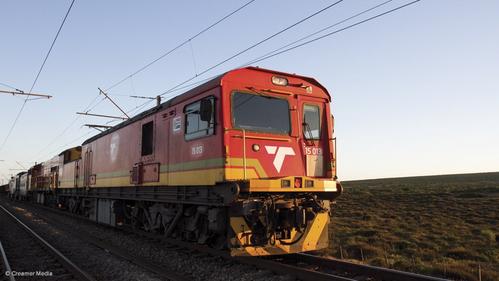Business
Transnet’s R64.5 Billion Rail Revamp: Private Investment Aims to Reignite Coal and Iron Ore Exports

South African coal and iron ore exporters are gearing up to sign pivotal agreements with state-owned logistics giant Transnet SOC Ltd. in a bid to overhaul critical rail infrastructure. With export volumes falling to historic lows due to deteriorating rail lines, the proposed partnerships aim to inject billions of rand into repairs and revitalize one of the nation’s key economic drivers.
Rail Collapse Hits Export Volumes
The collapse of South Africa’s freight rail network has had dire consequences for exporters. In 2023, coal exports plummeted to a 30-year low of 48 million tons, while iron ore shipments dropped to their lowest levels in a decade. Although coal railings recovered slightly to 52.1 million tons in 2024, this remains far below the 91-million-ton capacity.
Deterioration in rail infrastructure, fueled by poor maintenance, equipment theft, and vandalism, has hampered South Africa’s ability to transport goods efficiently.
Private Sector to the Rescue
To address this crisis, private operators will be allowed to run trains on the lines starting in April 2025. Organizations representing industry heavyweights like Glencore Plc and Anglo American Plc are currently finalizing agreements with Transnet.
These agreements are expected to facilitate the flow of private capital and expertise into repairing the coal and iron ore lines. Ian Bird, transport and logistics head for Business for South Africa (B4SA), highlighted the urgency of the situation:
“We are now at a point where something has to be done. The state of the lines impacts both Transnet Freight Rail and third-party operators.”
Transnet estimates that restoring the coal line will cost R12.9 billion ($700 million) over three years, while the iron ore line will require R9 billion. Repairing all of Transnet’s tracks, including container and manganese lines, will require a staggering R64.5 billion over five years.
Export Challenges and Opportunities
South Africa’s coal is primarily exported from Richards Bay on the eastern seaboard, while iron ore shipments leave from the Saldanha port on the west coast. Together with gold, platinum group metals, and vehicles, these commodities form the backbone of South Africa’s export economy.
The new agreements aim to restore the rail lines to near-maximum operational capacity, helping South Africa regain its competitive edge in global markets. However, questions remain about funding sources. While private investment will play a crucial role, National Treasury is expected to outline additional funding in the upcoming budget.
Transnet’s Challenges and Missed Targets
At a recent meeting between government, business leaders, and President Cyril Ramaphosa, Transnet disclosed that its total freight rail volumes for the 2023-24 financial year increased by 5.3% but fell 7 million tons short of its 170-million-ton target. The company’s ambitious goals for the 2025-26 financial year include moving 193 million tons, with plans to reach 250 million tons by 2030, partly driven by private operators.
Independent entities have already completed technical assessments of the repairs needed for the coal and iron ore lines. Further studies will be conducted to evaluate the requirements for other critical routes.
The agreements with private investors represent a turning point for South Africa’s rail and export sectors. By injecting much-needed funds and technical expertise, these partnerships could reverse years of neglect and inefficiency.
For South Africa, success hinges on effective collaboration between the government, private operators, and industry stakeholders. Restoring Transnet’s rail network is not just a logistical challenge—it’s a critical step toward economic recovery and growth.
The upcoming rail agreements between South African coal and iron ore exporters and Transnet offer a glimmer of hope for the country’s struggling export industry. With private investment poised to address the infrastructure crisis, South Africa has a chance to unlock its economic potential.
As these partnerships take shape, all eyes will be on how effectively they can tackle the challenges of funding, execution, and maintaining long-term operational standards.
Follow Joburg ETC on Facebook, Twitter , TikTok and Instagram
For more News in Johannesburg, visit joburgetc.com














